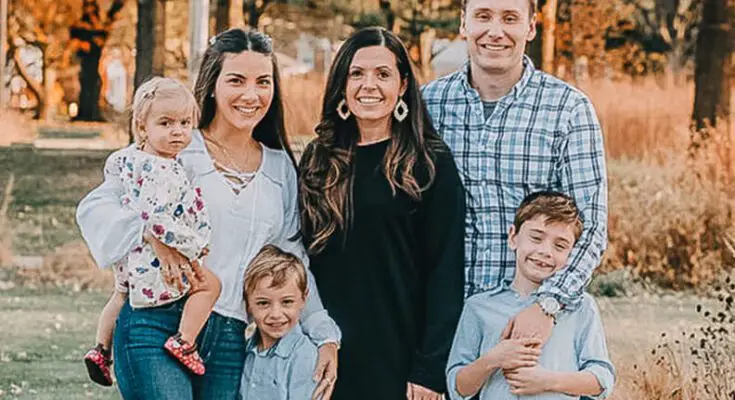Key Takeaways:
- Understanding the role and benefits of international au pairs in family dynamics.
- Exploring cultural exchange opportunities through hosting au pairs.
- Legal and practical considerations when welcoming an au pair into your home.
- The influence of global trends on the popularity of international au pairs.
- How to create a supportive and enriching environment for family and au pair alike.
Deepening familial bonds while embracing the vibrancy of cross-cultural understanding is becoming increasingly popular. The international au pair program is one such avenue that provides a rewarding experience for both the host family and the au pair. Embedding someone from a different cultural background into your home contributes to a multifaceted growth dynamic, enriching the lives of all members involved. By investigating opportunities to find an au pair, families make the first step towards this valuable global exchange.
An au pair’s role is often multifaceted and goes beyond the scope of simple child-minding. They become a part of the family, participating in daily activities, sharing meals, and, most importantly, providing a unique perspective on life that can enlighten and educate. The direct engagement with a language and culture different from one’s own makes for an invaluable educational tool from which both children and parents can learn. It’s about expanding worldviews within the home’s comfort and diversifying household members’ social and cultural experiences beyond their usual norms.
Cultural Exchange and Personal Growth
Embarking on the journey of hosting an international au pair is an exciting venture into cultural exchange. When a family opens its doors to an individual from another country, it does so with the aim of harmonious coexistence and shared learning. The au pair brings their language, traditions, and perspectives, offering a direct window into another culture. For children especially, the benefits are pronounced. Exposure to a new language naturally is a known method of fostering fluency. At the same time, firsthand knowledge of cultural practices enriches their educational spectrum and promotes a more inclusive outlook.
Introducing your kids to diverse cultures early fosters acceptance and celebration of individuality. Children who interact with people from other backgrounds also learn sophisticated communication skills that will benefit them in the workplace, school, and social situations as they age. The host nation’s cultures, traditions, and holidays are all personal experiences for the au pair. They integrate into a new culture through everyday activities, family get-togethers, and holidays, which widens their perspectives and deepens their comprehension of the world.
Navigating the Legal Framework
But with this great opportunity comes responsibility. Welcoming an international au pair involves not just matching personalities and aligning expectations but also navigating a complex legal documentation and compliance maze. Countries have set specific visa and work permit requirements to regulate this exchange. As host families, it is paramount to ensure that all legalities are meticulously taken care of to foster a safe and secure experience for the au pair. It includes understanding the labor laws governing working hours, remuneration, and living conditions.
Trends Influencing the International Au Pair Movement
The rise of globalization has directly impacted the proliferation of international au pairs. Ease of travel and advancements in communication technology have made it more feasible for young people to explore opportunities abroad. Furthermore, global demographic changes, such as increased workforce mobility and the transformative effects of technology on education, have made international stays more appealing. These trends contribute to a more connected world where cultural exchange is possible and actively encouraged as a beneficial pursuit.
Creating a Nurturing Environment for Your Au Pair
Once the legalities are out of the way, the actual task begins: cultivating an environment that is comfortable, respectful, and conducive to personal growth for the au pair. It starts with establishing a clear line of communication where expectations are set and cultural sensitivities are understood and honored. For the au pair, navigating a foreign lifestyle while assuming childcare responsibilities can be daunting; hence, the host family must provide support and guidance as they adapt to their new surroundings.
Success Stories: Positive Outcomes from Au Pair Programs
The stories shared by families and au pairs alike are often glowing endorsements for the program. The narratives are rich and diverse, from tales of au pairs who have traveled the world, learning from different cultures to families who have found lifelong friends. The experience can go beyond temporary childcare and become a lasting relationship with someone considered an essential part of the family. These positive outcomes genuinely encapsulate the spirit of the au pair program – one of enduring solidarity and cultural enrichment.
Getting Started with an International Au Pair
The first step in this engaging journey to hosting an au pair is finding the right match – an individual whose skills, interests, and personality align with the family’s values and needs. We should engage in thorough discussions with potential au pairs to gauge common ground and ensure that the experience will be enriching for every party involved. While being strategic about selection is critical, the true essence of the experience lies in the journey of growth, learning, and intercultural exchange that follows. As the concept of a global village materializes within the constraints of one’s home, we have realized the invaluable opportunities international au pairs present. For further information on the formalities and procedures involved, families can consult the U.S. Department of State – Exchange Visitor Program, which provides comprehensive guidance on exchange visitor programs such as that of international au pairs. Furthermore, viewpoints of how these cultural exchanges affect family dynamics and child development may be investigated via resources that examine the beneficial impacts of diverse cultural surroundings on developing brains.



